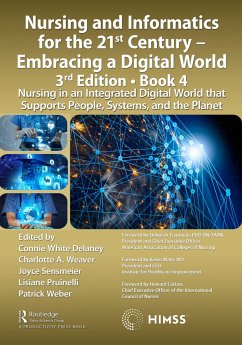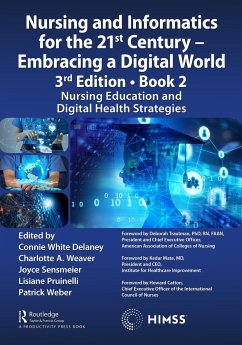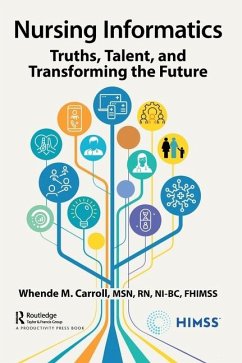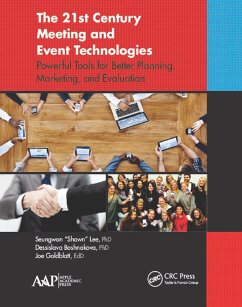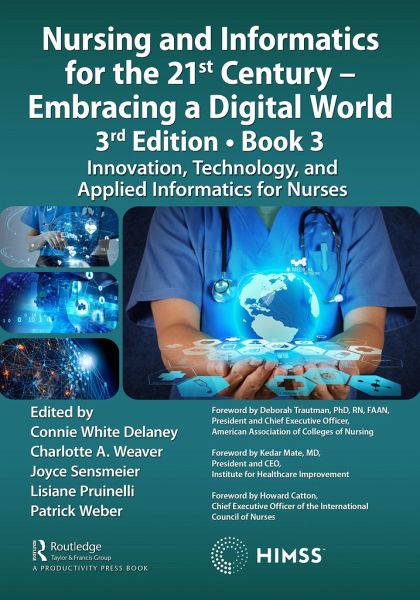
Nursing and Informatics for the 21st Century - Embracing a Digital World, 3rd Edition, Book 3
Innovation, Technology, and Applied Informatics for Nurses
Herausgeber: Delaney, Connie White; Sensmeier, Joyce; Weaver, Charlotte
Versandkostenfrei!
Versandfertig in 1-2 Wochen
170,99 €
inkl. MwSt.

PAYBACK Punkte
85 °P sammeln!
Innovation, Technology, and Applied Informatics for Nurses explores informatics trends emerging over the next decade including personalized healthcare, telehealth, artificial intelligence, voice recognition, and predictive analytics. Emphasis is placed on their importance, benefits, and key challenges for nurses. Digital health and patient-generated data in the context of remote monitoring are highlighted with a focus on digital health tools, issues, challenges, and implications for the future. A featured case study includes the use of patient-generated data during the COVID-19 pandemic includ...
Innovation, Technology, and Applied Informatics for Nurses explores informatics trends emerging over the next decade including personalized healthcare, telehealth, artificial intelligence, voice recognition, and predictive analytics. Emphasis is placed on their importance, benefits, and key challenges for nurses. Digital health and patient-generated data in the context of remote monitoring are highlighted with a focus on digital health tools, issues, challenges, and implications for the future. A featured case study includes the use of patient-generated data during the COVID-19 pandemic including critical lessons learned. A discussion of the technological building blocks of sensors and the Internet of Things highlights examples of how healthcare delivery system models of care are being transformed. Applied data science as an emerging healthcare discipline explores natural language processing, data science frameworks, implications for data bias, and ethical considerations. The conceptual building blocks of artificial intelligence and machine learning are outlined resulting in a call for all nurses to develop an improved understanding of implications for our practice and our patients. Telehealth is described as including modalities, services, virtual care, human factors, and financial, legal, and regulatory considerations. Key drivers and stakeholders advancing simulation-based care delivery are discussed including recommendations for how healthcare organizations can perform event simulation as they prepare to meet the risk management needs of the future. This book concludes by highlighting documentation best practices implemented during the COVID-19 pandemic. Nursing and Informatics for the 21st Century - Embracing a Digital World, 3rd Edition is comprised of four books which can be purchased individually: Book 1: Realizing Digital Health - Bold Challenges and Opportunities for Nursing Book 2: Nursing Education and Digital Health Strategies Book 3: Innovation, Technology, and Applied Informatics for Nurses Book 4: Nursing in an Integrated Digital World that Supports People, Systems, and the Planet





